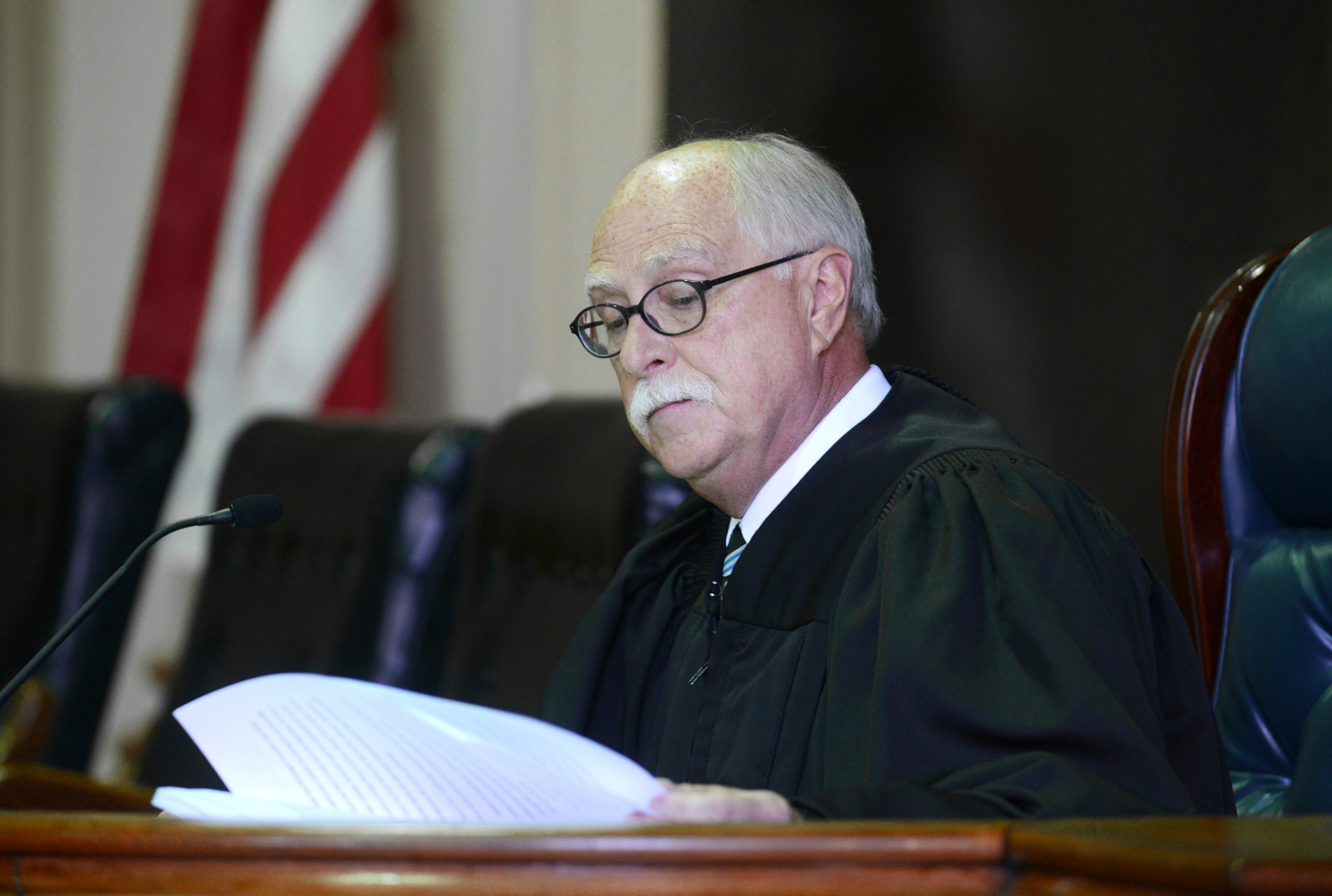Ohio judge pulled from cases over coronavirus concerns
The chief justice of the Ohio Supreme Court has removed a judge from two cases for failing to take proper safety precautions to prevent the spread of the coronavirus

An Ohio judge who failed to adopt written rules for mask wearing and other coronavirus prevention measures has been removed from two cases by the chief justice of the Ohio Supreme Court.
Although Muskingum County Court Judge Mark Fleegle announced some preventative steps after a complaint, his lack of written procedures makes it difficult for jurors and others to know what's expected of them, Chief Justice Maureen O'Connor said in an order earlier this month.
“Even if Judge Fleegle is convinced that he can preside over a safe jury trial without any sort of written protocol,” O'Connor wrote, he should recognize, "that the health concerns of attorneys and parties should be an important factor in deciding whether to proceed with jury trials during this phase of the pandemic.”
Harry Reinhart, the defense attorney who filed the complaint, raised concerns about the lack of a courtroom mask mandate, limited social distancing, no discernable air circulation and no barriers between participants. During a recent trial, “a significant number of jurors (three or four) never wore masks,” Reinhart said in his complaint.
Reinhart had two cases scheduled for trial before Fleegle: a defendant accused of rape and another accused of illegally firing a weapon. O'Connor selected an outside judge to oversee the cases.
Reinhart said that at age 69, he’s at risk for serious complications if infected with the virus.
Fleegle responded by saying only one positive case had been traced to the court under his procedures and that the risk of exposure is part of being an essential worker. He also noted he’s the approximate age of Reinhart and is vulnerable.
“My own risk factors are so great I do not believe I would survive the virus if I got it,” Fleegle said in a court filing, adding he is diabetic and has heart problems and other medical conditions.
In some Ohio counties, courts are postponing trials because of legitimate difficulties attracting jurors over concerns about the coronavirus, said Paul Pfeifer, executive director of the Ohio Judicial Conference, which advocates on behalf of Ohio's more than 700 judges.
But in other places, “trial judges have been able to proceed safely with jury trials,” said Pfeifer, a former state Supreme Court justice. Judges are being careful by using remote options, but defendants' rights must also be considered, he said.
“Imagine if you’re innocent,” Pfeifer said. “You’re sitting there because you face a serious charge and you can’t get your case tried.”
Ohio is currently under a 10 p.m. to 5 a.m. curfew, a statewide mask-wearing mandate, and restrictions on gatherings of more than 10 people. Republican Gov. Mike DeWine has made it clear his orders don't apply to the judicial and legislative branches because of the separation of powers.
O’Connor has urged judges to hold virtual hearings or trials when possible, to enact strict preventative measures if in-person hearings are required, to require mask wearing and to reduce the number of people in courthouses, among other measures. Before the Fleegle ruling, however, she had not expressly required written protocols.
Chief justices in several states have issued encouragements or warnings to judges to enforce COVID-19 prevention measures, including mask-wearing, according to the National Center of State Courts. Many courts are now restricting or ending jury trials, suspending in-person proceedings and encouraging teleconferences, the center said.
In Tennessee, the board of judicial conduct issued a public reprimand on Dec. 15 to a Lewis County judge for failing to limit the number of people in his courtroom. At times, the board said, the courtroom was “filled to capacity," with members of the public sometimes standing shoulder to shoulder.
Another defense attorney who practices in Fleegle's courtroom noted numerous safety measures at the Muskingum County courthouse. The courtroom is large, the judge is seated far from others, defense attorneys and prosecutors sit apart and defendants are brought in wearing masks and spread out as much as possible, said attorney Amy Otto.
“I feel there are appropriate safety measures in place,” for lawyers practicing in Fleegle’s court, Otto said in a letter to the state's Supreme Court last month.
Bookmark popover
Removed from bookmarks